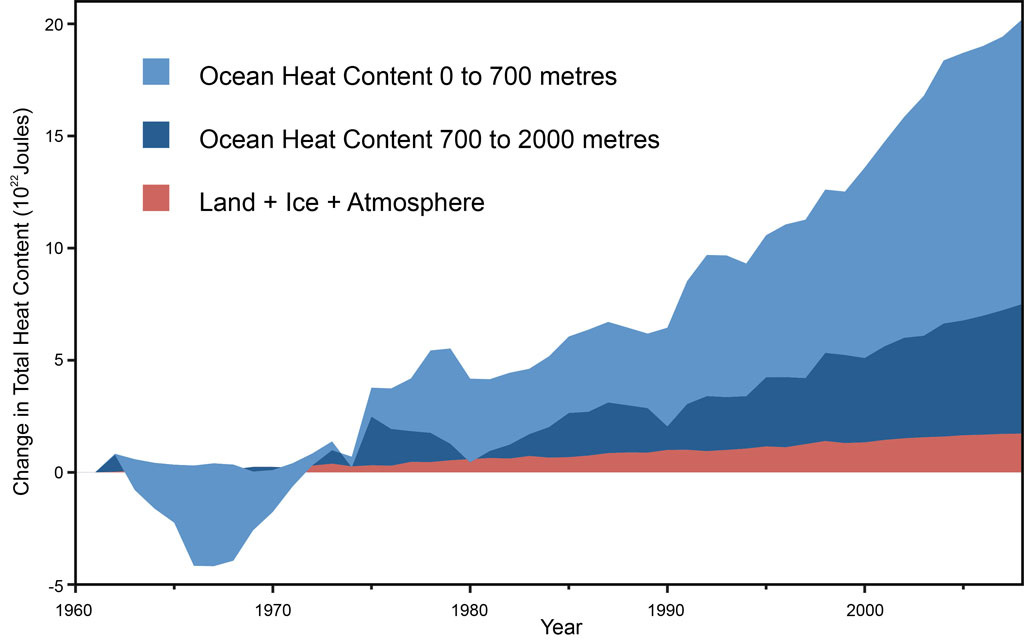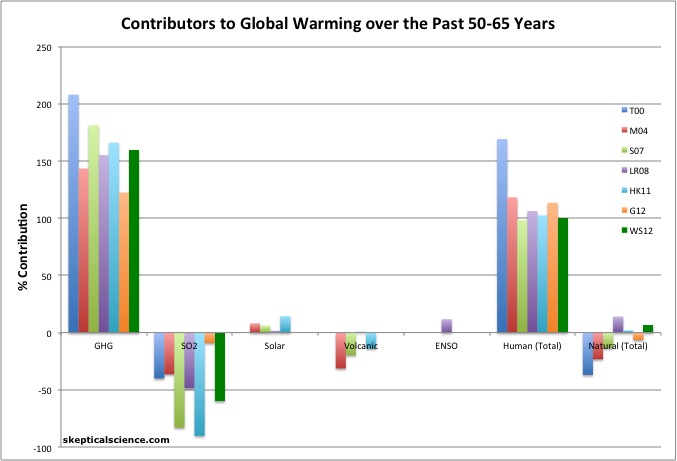Climate of Doubt Strategy #2: Exaggerate Uncertainty
Posted on 27 November 2012 by dana1981
The PBS Frontline program Climate of Doubt did a masterful job in exposing the tactics climate denialists have used to delay meaningful action in reducing greenhouse gas emissions and addressing climate change in the USA. The #1 strategy they have pursued involves denying the scientific consensus on human-caused global warming. As the program discussed, a similar secondary strategy has involved exaggerating the uncertainties in climate science. For example, a 1998 American Petroleum Institute memo stated
"Victory will be achieved when average citizens "understand" (recognize) uncertainties in climate science"
There are two important points to be made here. First, while it is important to understand the remaining uncertainties in climate science, it is critical to also realize how much we do understand about the climate. Second, when it comes to climate change, uncertainty is not our friend.
We Know a lot About the Climate
First of all it's important to note that while there will always be uncertainties associated with any area of scientific research, we have learned a lot about how the Earth's climate functions. It's important to sometimes take a step back and look at the big picture. We know that:
-
-
Global warming has not slowed (Figure 1)
-
-
-
The increased greenhouse effect has caused more warming than we've observed (meaning that the net effect of non-greenhouse gas influences like aerosols is one of cooling Figure 2)
-
Figure 1: Land, atmosphere, and ice heating (red), 0-700 meter OHC increase (light blue), 700-2,000 meter OHC increase (dark blue). From Nuccitelli et al. (2012)
Figure 2: Percent contributions of various effects to the observed global surface warming over the past 50-65 years according to Tett et al. 2000 (T00, dark blue), Meehl et al. 2004 (M04, red), Stone et al. 2007 (S07, green), Lean and Rind 2008 (LR08, purple), Huber and Knutti 2011 (HK11, light blue), Gillett et al. 2012 (G12, orange), and Wigley and Santer 2012 (WS12, dark green).
Uncertainties Remain
Two remaining climate uncertainties are how fast the planet will continue to warm and exactly how bad the consequences of a given amount of global warming will be. For example, we don't know whether clouds will dampen or amplify global warming (though the best current evidence suggests they will slightly amplify it). We don't know at precisely what point various warming feedbacks (like methane clathrate release from the Arctic or methane release from beneath melting permafrost) will be triggered. We don't know precisely how bad extreme weather will become at any given amount of warming, or how much critical factors like global food production will be impacted.
However, it should also be clear that these uncertainties are not the least bit reassuring.
Inaction Based on Uncertainty is Risk Management Failure
In testimony to U.S. Congress shown in the PBS program, Christopher Monckton and Patrick Michaels argued that the science is not settled and that we should therefore take no action to mitigate climate change.
CHRISTOPHER MONCKTON: The right response to the non-problem of global warming — first slide, please — is to have the courage to do nothing.
PATRICK MICHAELS: This demonstration shows that the oft-reported mantra in Washington, quote, “The science is settled,” is not true at all.
The strategy being implemented here is quite clear - convince policymakers that the uncertainty about the science and consequences of climate change are too large to take any action to address the problem. This strategy is why climate contrarians are sometimes referred to as "delayers", because they argue that we should delay action until we can be more certain of the human-caused global warming outcome.
The logical flaw in this argument is equally clear. It is akin to arguing that a cigarette smoker should continue smoking because he cannot be certain if or when he will contract cancer. It is a foolhardy approach. Odds are that eventually cancer is contracted, just as the odds are that CO2 levels will soon become too high to avoid catastrophic climate change. The longer action to mitigate these consequences is delayed, the higher the probability that catastrophic consequences will occur.
Perhaps we will get lucky. Perhaps the smoker will be one who does not contract cancer, and perhaps some yet unknown negative feedback will delay catastrophic climate change long enough for us to avoid it. But hoping that we get lucky is foolish, and a failure of fundamental risk management.
Note: readers are encouraged to suggest a better analogy in the comments!
Uncertainty Own-Goal
In fact, larger uncertainty actually makes the case for climate mitigation stronger. As Stephan Lewandowsky wrote,
"Uncertainty should make us worry more than certainty, because uncertainty means that things can be worse than our best guess....in the case of climate change, uncertainty is asymmetrical and things are more likely to be worse, rather than better, than expected."
Those who argue that uncertainty justifies inaction are assuming that we will get lucky and the consequences of human-caused climate change will fall on the lower, more benign end of the possible spectrum. However, uncertainty also means that the consequences could fall on the higher, more catastrophic end of the spectrum, and we certainly must take action to avoid these possible catastrophic scenarios. For this reason, arguing for high uncertainty is actually an own-goal by the climate denialists.
Action Takes Courage, Inaction is Cowardice
Quite contrary to Monckton's comment above, inaction does not require any courage whatsoever. A no action approach involves blindly following the easiest path and foolishly hoping we get lucky. The reason we have not taken serious action to mitigate climate change is that doing so is difficult. The economies of the world's developed countries were able to grow rapidly based on the consumption of seemingly cheap energy from fossil fuels. Unfortunately we are only now realizing the true costs of that energy.
But while action is difficult, and reducing our reliance on fossil fuels will require a serious concerted effort, our only other choice is to continue blindly down a path which will most likely lead to catastrophic consequences for future generations. The longer we wait to be certain about this ultimate result, the higher the odds become that it will occur.
While the climate delayers argue for inaction based on uncertainty, in reality inaction would only be justified if we could be certain that the harmful consequences of climate change will not occur. A larger uncertainty means we cannot rule out the worst possible scenarios, which means that from a risk management perspective we must take action to prevent those scenarios from coming to fruition.
Anything less is a failure to protect the future of our children and grandchildren.































 Arguments
Arguments

























 0
0  0
0






Comments